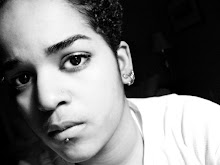Wednesday, October 15, 2008
wiki
Genderqueer and intergender are catchall terms for gender identities other than man and woman. People who identify as genderqueer may think of themselves as being both male and female, as being neither male nor female, or as falling completely outside the gender binary. Some wish to have certain features of the opposite sex and not all characteristics; others want it all. The term may apply to appearance, social behavior or a combination of the two...
Some genderqueer people see their identity as one of many possible genders other than male or female, while others see "genderqueer" as an umbrella term that encompasses all of those possible genders. Still others see "genderqueer" as a third gender to complement the traditional two, while others identify as genderless or agender. Genderqueer people are united by their rejection of the notion that there are only two genders. The term "genderqueer" can also be used as an adjective to refer to any people who transgress gender, regardless of their self-defined gender identity.
People who identify outside the usual binary genders may use any or all of the following terms to describe themselves:
* Androgyne
* Intergender
* Bigender
* Multigender
* Third gender
* Neuter/Neutrois/Agender
* Gender-fluid
* Post-gender
* Omnigender
* Supragender
* Megaqueer
* Megagender
Some genderqueer people identify as transgender, using the word "transgender" as an umbrella term for a broad range of people who identify as a gender other than the expected gender for their assigned sex, and some do not. (This usage is only one of multiple conflicting definitions of the term "transgender" in use.) The terms "transgender" and "genderqueer" are not synonymous, but there is some overlap between people who identify as transgender and people who identify as genderqueer.
Like transgender people, genderqueer people may transition physically with surgery, hormones, electrolysis, and other practices, or they may not choose to alter their bodies by these means. They may also transition socially, or they may continue to dress and go by the pronouns of their assigned gender.
Alternate meanings
The term genderqueer is also sometimes used in a broader context as an adjective to refer to any person who challenges gender roles and binary notions of gender. This is similar to the way homosexual, bisexual, and other people may identify as queer as a broader, umbrella term. However, because genderqueer also refers to a more specific gender identity, the terms gender-variant, gender-transgressive, or gender-nonconforming are applied more broadly to refer to the wide range of people whose gender identity or expression transgress societal expectations.
Subscribe to:
Post Comments (Atom)

No comments:
Post a Comment